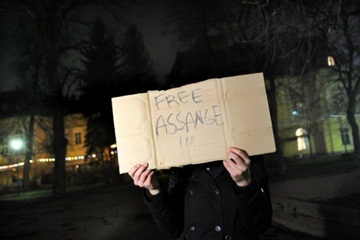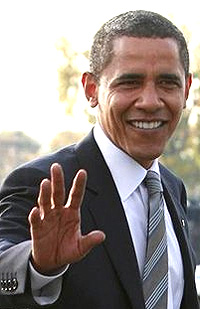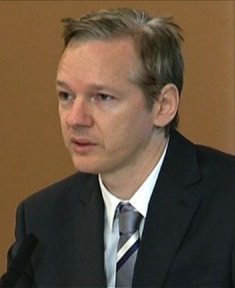The global attention on the leaked US diplomatic cables has now shifted from the messages to the messenger - WikiLeaks founder Julian Assange has been detained without bail in Britain on sex crime complaints originating from Sweden.
The leaks, about 250,000 classified cables from more than 250 US embassies around the world, were obtained by WikiLeaks and are being released daily.
The cables reveal secret information about intelligence gathering by the US and strategies related to military and political actions. Some highlights of the first week:
- Saudi Arabia and other US Arab allies urge military action against Iran
- Actions to stop Iran’s nuclear activities and ambitions
- Intelligence gathering on UN secretary-general Ban Ki-Moon
- Planned EU boycott of the inauguration of Iran president Ahmadinejab in 2009
- Unification of North and South Korea
- Criticism of Prince Charles - whether he is fit to be the King of England
- Hillary Clinton’s request for information on the mental health of Argentina’s president Christine Kirchman
- France, a difficult ally in the fight against terror
- Pakistan army chief pushing President Asif Ali Zardani into exile
- Canadian distrust of the US
- Alleged rampant corruption of Afghan government officials and the reported questioning of vice-president Massoud in Dubai when he flew in with US$52 million in cash
- US allies complain about 15 percent handling charges by the US on donations to build the Afghan army
- US concerns that China may be planning Internet warfare
- US and Russia decide to fight a drug war in Afghanistan
On the surface of it, I tend to agree with several analysts who point out that the leaks reveal a US concern about global security and peace.
 But the descriptions of world leaders are far from flattering. Their lifestyles, levels of intelligence and alleged corrupt conduct exposed in the messages from US embassies should worry their citizens.
But the descriptions of world leaders are far from flattering. Their lifestyles, levels of intelligence and alleged corrupt conduct exposed in the messages from US embassies should worry their citizens.
Some of these descriptions are being dismissed by analysts as diplomatic gossip that one would hear at dinner parties hosted by embassies.
President Barack Obama has criticised WikiLeaks , as have other leaders. The US Attorney General’s Office is working overtime to examine what charges it can bring against Wikileaks including the treaties US could use to extradite Assange.A Canadian academic called for his assassination but has apologised after an outcry from Canadians.
Australian premier Julia Gillard said that what Wikileaks has done in disclosing these documents is illegal. However, I understand it's not illegal under any law in Australia.
According to the Oxford Internet Institute, it is too late to legislate WikiLeaks as the information is already in the public domain.
Information at any cost?
Leaders, academics and media commentators have raised fundamental issues vis-a-vis the limits to the rights of citizens to know what their governments are doing.
 Questions are also being raised whether the citizen’s right to know and to transparency has been taken too far.
Questions are also being raised whether the citizen’s right to know and to transparency has been taken too far.
Obama promised an open and transparent government in 2008, when he campaigned for the US presidency. He is reported as having said that he would “turn the page on a growing empire of classified information”, that “we’ll protect sources and methods” but that “we won’t use sources and methods to hide the truth”.
On his first day in office on Jan 21, 2009, Obama announced that “the government should not keep information confidential merely because public officials might be embarrassed by disclosure, because errors and failures might be revealed, or because of speculative or abstract fears”.
As many commentators have rightly pointed out, Obama has been able to keep his inaugural promise, thanks to WikiLeaks.
Hillary Clinton campaigned for a return to transparency and a system of checks and balances during the 2008 presidential campaigns. As soon as the global media went to town about descriptions of heads of states and their position on what US should be doing, she had to do damage control.
In 1966, US President Lyndon B Johnson signed the Freedom of Information Act. In 1995, President Bill Clinton signed an Executive Order underscoring the ‘right to know’ instead of the standard ‘need to know’.
It is a fundamental right of citizens to know what their governments are doing in all spheres that impact the lives of all citizens and others impacted by our government policies. For example ,if a government is going to war with another nation, citizens of both countries have the right to know about the intended war.
WikiLeaks has shown that an open, connected society can stand up better to political pressures than a closed one.
But there are different positions on citizens’ right to know about everything their governments are doing, including their foreign policy strategies and actions and disclosure issues. In the Internet era, can rules of disclosure apply?
 “The conflict of interest between officials’ need for discretion and the public’s for knowledge can never be resolved,” says Rodric Braithwaite the former UK ambassador to Russia from 1988-1992.
“The conflict of interest between officials’ need for discretion and the public’s for knowledge can never be resolved,” says Rodric Braithwaite the former UK ambassador to Russia from 1988-1992.
Influential supporters of Assange ( right ) like filmmaker John Pilger ,who first came to know the WikiLeaks founder after interviewing him for a documentary called ‘The War You Don't See’, are solidly behind him. The support is premised on the basis of the fundamental right to know, which is a pressing issue in this 21st century digital, networked world.
However, politicians including those who campaign for transparency and open governance are not at ease with the tsunami of leaks. Political pressure seems to edge out the ‘right to know’ principle. PayPal and Amazon have turned their backs on WikiLeaks.
What WikiLeaks lacks is the advocacy of democratic and human rights movements like Amnesty International and Human Rights Watch.
Is the media championing WikiLeaks’ right to publish all the diplomatic cables or is it driven by readers’ desire for sensational news?
JOSIE M FERNANDEZ is currently an Asian Public Intellectual Fellow, director of Philanthropy Asia, consultant and researcher. Working on sustainability, philanthropy and anti-corruption actions are some of her current passions besides writing.

